‘Brazen corruption’: Donald Trump is selling policies for a second term to the highest bidders
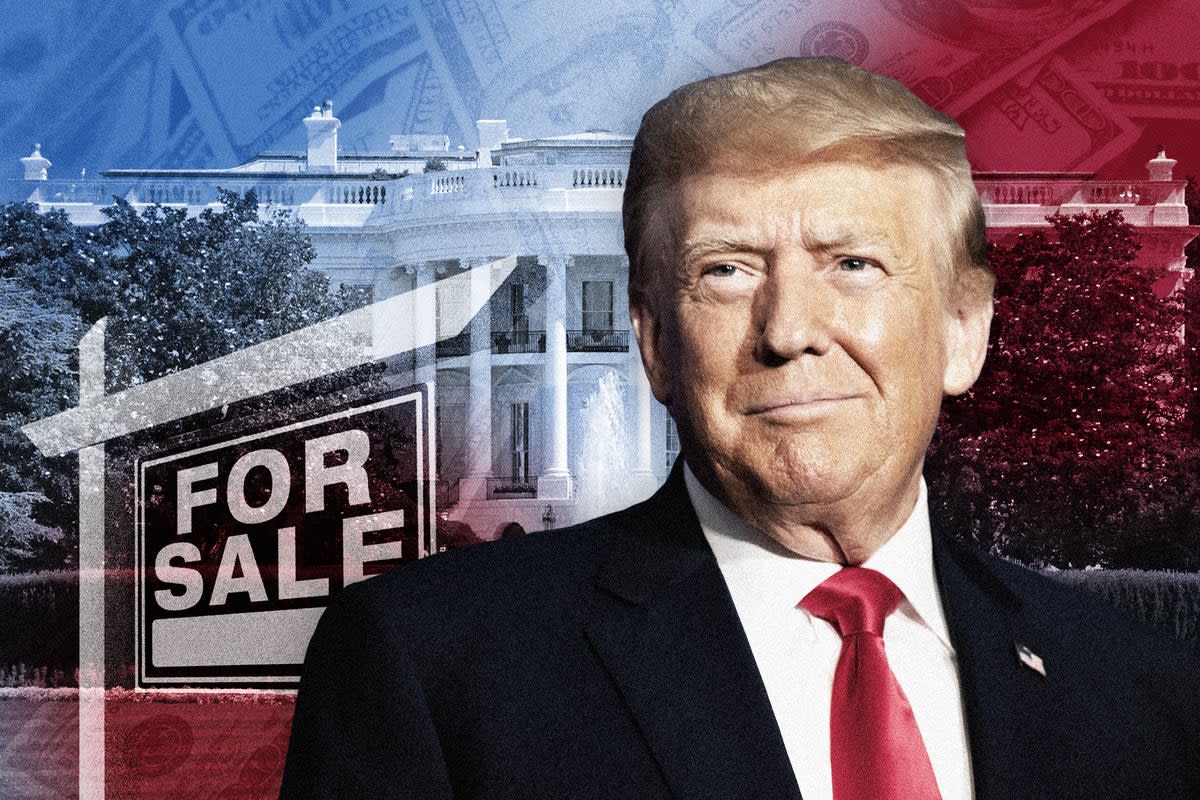
Donald Trump is no stranger to a quid pro quo — he was impeached for one, after all. But while campaigning for a second term in the White House, he has gone further than perhaps any other candidate in recent history to shape his policies in return for cash.
Trump is not making these bargains behind closed doors or in smoky back rooms, but at fundraisers and events attended by dozens of influential and extremely wealthy people.
On several occasions he has made explicit offers to reward donors by enacting or dismantling policy on their behalf should he win in November, often reversing his own previously held positions.
Democrat Jamie Raskin, ranking member of the House committee on oversight and accountability, accused Trump of treating the presidency “as a for-profit business enterprise and money-making venture”.
He told The Independent that the former president was “brazenly offering to sell out US policy to any corporate and billionaire campaign donors ready to make a deal, including telling Big Oil he will sign their executive orders in exchange for a cool one billion dollars”.
“Donald Trump will literally sell out the future of humanity for another billion dollars,” he added.
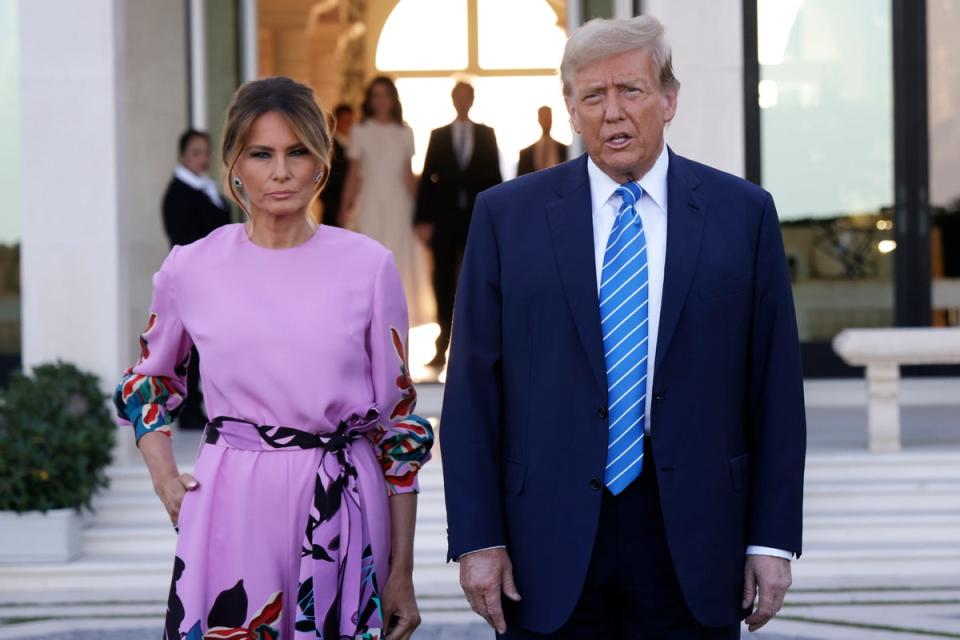
The Campaign Legal Center, a non-profit watchdog that focuses on campaign finance laws, called Trump’s actions “brazen, quid pro quo corruption”.
"It is deeply concerning and problematic to see a presidential candidate solicit millions of dollars from wealthy donors in exchange for promised policies or actions that cater to the donors’ wishes,” said Saurav Ghosh, the group’s director of federal campaign finance reform.
Ghosh told The Independent that “years of deregulatory court decisions” have fostered a culture of big money in US elections that allows Trump “to act with impunity, pushing legal boundaries or even breaking them outright”.
Trump’s bargaining began almost the moment he left office, and has continued to this day.
Here are the policies he is selling to donors.
$1bn from oil companies
At a lavish dinner at Mar-a-Lago in April, the former president gathered with around two dozen executives from the biggest oil companies in the country. His campaign was facing a sizeable cash shortfall against his opponent, President Joe Biden, and he was desperate to make up the difference.
As the executives complained about how the Biden administration’s environmental regulations were hurting their business, Trump made a starkly transactional pitch: raise $1bn to send me back to the White House.
If he won, he said he would immediately reverse dozens of Biden’s environmental rules and policies. The $1bn would be a “deal” for the companies, he added, because of the money they would save from deregulation.
The account of the meeting, first reported by the Washington Post, came from several people who attended. Among them were 20 executives from ExxonMobil, EQT Corporation and the American Petroleum Institute, which lobbies for the oil industry. It was reportedly organized by oil billionaire Harold Hamm.
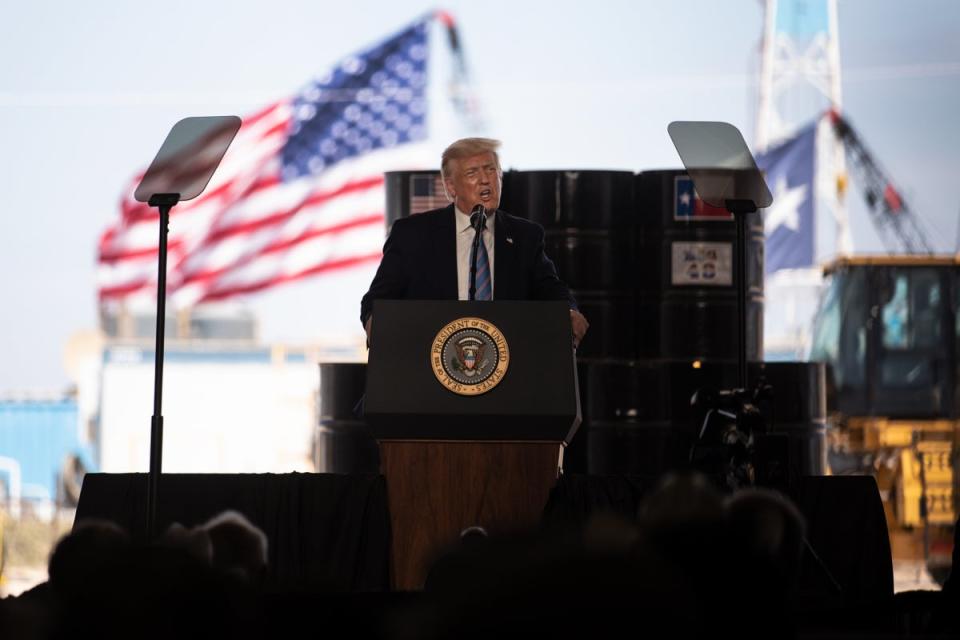
Specifically, Trump vowed to undo a Biden administration freeze on permits for new liquefied natural gas (LNG) exports “on the first day” of entering office, one attendee told the Post.
The meeting prompted a furious response from Democrats in the House and Senate.
Representative Raskin wrote to the CEOs of nine of the oil companies that attended the meeting to demand answers, calling it an “unvarnished quid pro quo”.
He said that reports that oil companies are working on potential executive orders for Trump “suggest that certain oil and gas companies, which have a track record of using deceitful tactics to undermine effective climate policy, may have already accepted or facilitated Mr Trump’s explicit corrupt bargain”.
The crypto president
Trump once called Bitcoin “a scam" and argued that it threatened the supremacy of the US dollar. A few years later, in desperate need of campaign cash, he is pitching himself to Silicon Valley as “the crypto president”.
Trump used the term to describe himself at a fundraiser hosted by tech investors David Sacks and Chamath Palihapitiya at the former’s home in San Francisco this month.
Both Sacks and Palihapitiya have spoken publicly about their investments in crypto, and the event was attended by a number of other notable crypto investors, including executives from Coinbase and twins Tyler and Cameron Winklevoss, who own the crypto company Gemini.
Trump has not always been popular in Silicon Valley. In 2020, the tech industry spent big to make him a one-term president. But this time around, there has been a slight yet notable shift among a certain set of crypto-loving tech billionaires.
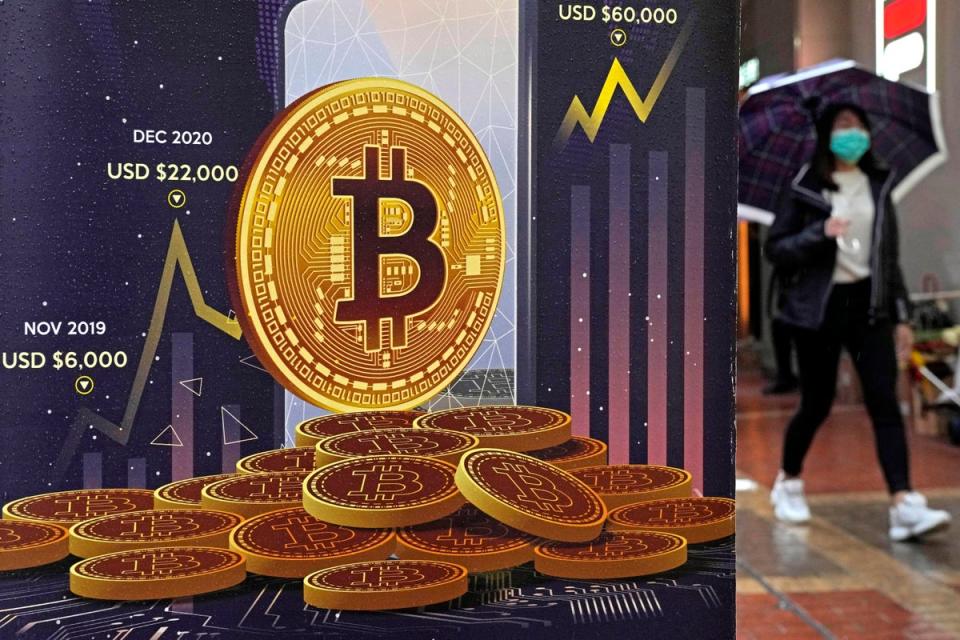
The crypto industry has spent tens of millions of dollars in an effort to influence the 2024 elections, funneling money to help elect lawmakers who will undo regulatory moves by the Biden administration. The industry hopes that deregulation will lead to huge profits for crypto investors.
Trump’s message appeared to land: He came away with $12m in donations from that fundraiser in San Francisco, and the promise of much more.
TikTok flip-flop
As president, Trump spearheaded efforts to ban TikTok.
“As far as TikTok is concerned, we’re banning them from the United States,” the then-president declared to reporters aboard Air Force One in July 2020.
Indeed, he signed an executive order in his last year in office that would have effectively prohibited the video app, which is majority-owned by a Chinese company. But just this month he joined TikTok himself. And more recently he has spoken out against efforts from both the Biden administration and his own party to regulate it.
On March 7, a House committee advanced a bill that would ban the app if it didn’t divest, even as TikTok users flooded congressional lines with thousands of calls urging lawmakers to back off.
That same day, Trump wrote on Truth Social that “if you get rid of TikTok, (then) Facebook and Zuckerschmuck will double their business,” referring to Meta CEO Mark Zuckerberg.
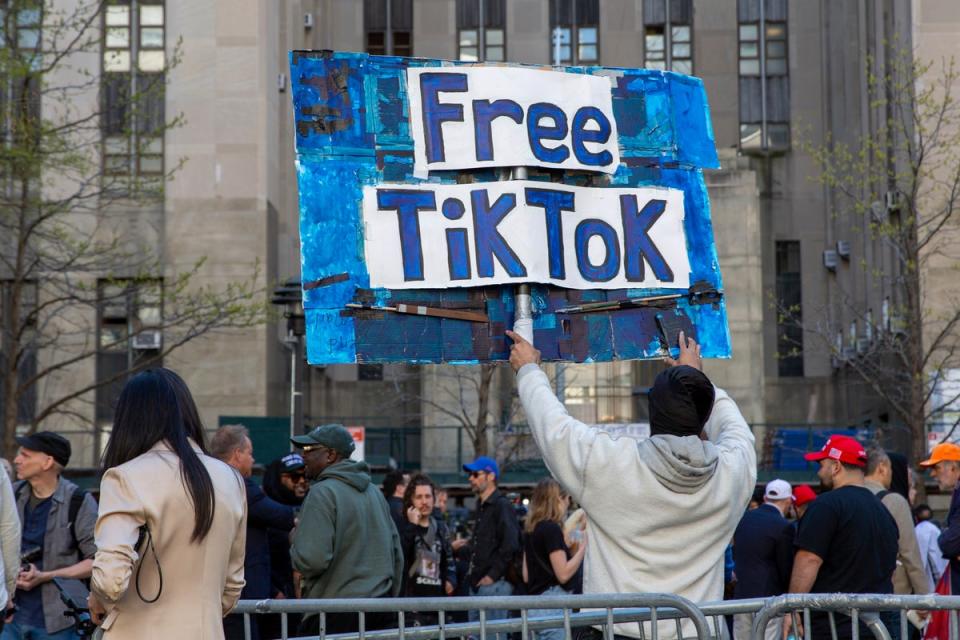
“I don’t want Facebook, who cheated in the last election, doing better,” wrote Trump, echoing a baseless conspiracy theory that social media platforms rigged elections against him. “They are a true Enemy of the People!”
What prompted this dramatic change?
Some clues may be derived from the fact that his words came swiftly after a very public rapprochement with Republican mega-donor Jeff Yass. Yass has a $20bn stake in TikTok’s parent company, ByteDance, and is the largest donor in this election campaign cycle.
At the request of Yass, Trump spoke at a conference of the influential right-wing Club for Growth, which the former president previously blasted as “Club for No Growth”.
Yass has given $61m to the group since 2010 but it backed Florida’s Ron DeSantis in the Republican primary against Trump.
At the conference, Trump told donors that he and the organization’s president, David McIntosh, are now “back in love”.
West Bank-rolling
Perhaps the most brazen quid pro quo of Trump’s first term came with a giant donation from casino mogul Sheldon Adelson, the Republican Party’s biggest funder over the past decade.
According to New York Times writer Maggie Haberman in her book ‘Confidence Man: The Making of Donald Trump and the Breaking of America,’ Adelson made a $20m donation to a political action committee to pressure then-president Trump to adopt the highly controversial decision to move the US embassy in Israel from Tel Aviv to Jerusalem.
For his second term, Trump may be poised to sell another controversial policy to the Adelson family.
Sheldon died in 2021, but his wife Miriam has continued his cause and may even surpass Yass to become Trump’s biggest patron in this election cycle.
A New York Magazine profile of Miriam, published last month, suggested that Trump’s support for the Israeli annexation of the West Bank was top of her wish list for a second term.
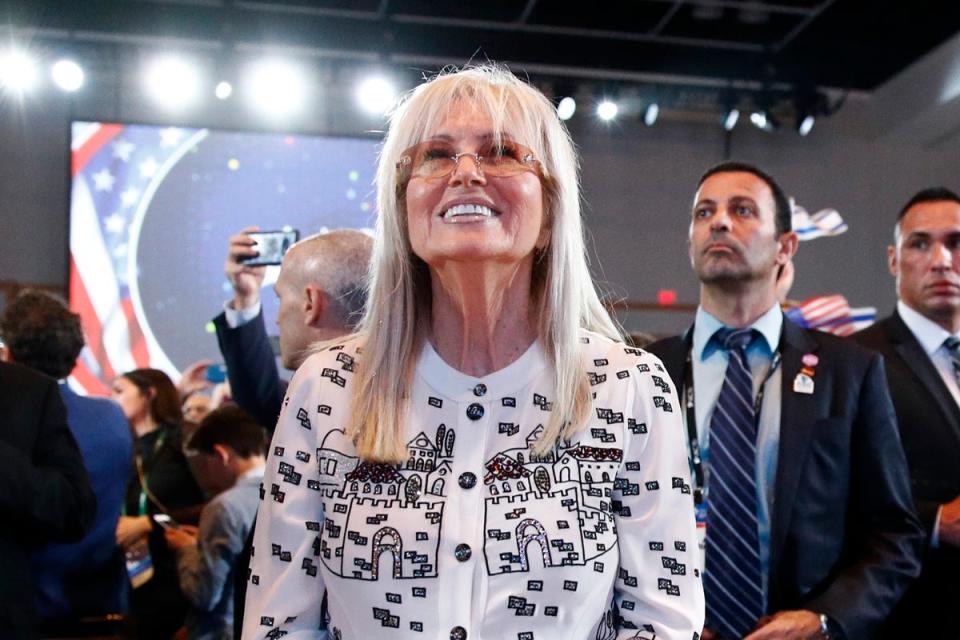
The West Bank is considered Palestinian territory and would form the basis of a future Palestinian state. Annexing it would be against international law.
By March, Mrs Adelson had not yet opened her checkbook to fund Trump’s campaign. That month, after he won the Republican primary, he invited her to a Shabbat dinner at Mar-a-Lago, according to the magazine, during which his courting of the donor appears to have begun in earnest. He gave an interview to the Adelson-owned newspaper Israel Hayom in which he described himself as “a very loyal person”.
“I’ve been the best president in history to Israel by a factor of ten because of all the things I do. The embassy, Jerusalem being the capital. Then you have Golan Heights … Nobody even thought that was going to be possible. I did that,” he said.
Ten days after the publication of the New York Magazine profile, Politico reported that Adelson would fund a massive political action committee for Trump’s re-election.
Trickle-up tax cuts
During his presidency, Trump implemented sweeping tax cuts for the top 1 per cent of earners and cut the maximum corporation tax rate from 35 per cent to 21 per cent. His cuts were “one factor helping the fortunes of US billionaires grow by a collective $1 trillion during the pandemic, from March 18 to December 7, 2020,” according to the non-partisan group, Americans for Tax Fairness.
The group said that an analysis of donations to Trump found that he was “enabled with a total of almost a quarter billion dollars in campaign contributions from 134 of America’s billionaires during his short, violent political career”.
Trump is looking to replicate that windfall by promising even more tax cuts for the wealthy, should he win a second term. Several billionaire donors backed off following the riot on January 6, 2021 — they are now finding their way back to Trump, largely thanks to that promise.
Speaking at a donor event at the luxury Pierre Hotel in New York last month, Trump warned the wealthy attendees that taxes would go up unless he wins in November because Biden has vowed to let his tax cuts expire at the end of 2025.
“You’re going to have the biggest tax increase in history,” he said. “So whatever you guys can do, I appreciate it.”
The comments are part of a pattern of offers to wealthy donors from Trump. Donate to me, he says, and I’ll make you richer.
Speaking at Mar-a-Lago in December last year, Trump drew laughs as he described the audience as “rich as hell” before declaring: “We’re gonna give you tax cuts!”
Money has always played a role in presidential campaigns, but the scale and brazenness of Trump’s policy firesale could have a dramatic impact on future elections. If it works, the US government could become even more in thrall to the billionaire class.

